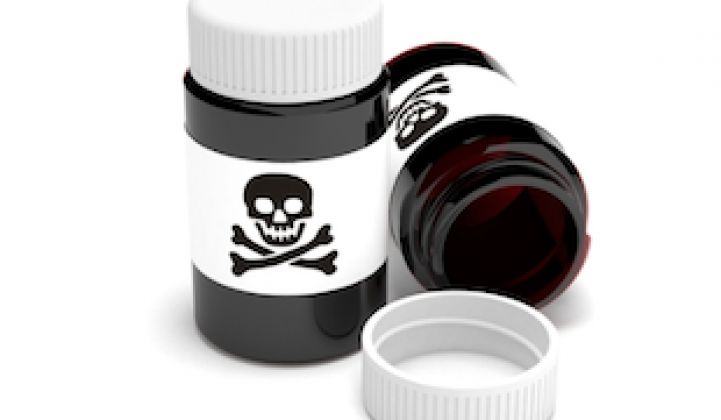Energy efficiency proponents rejoiced last month when Senators Jeanne Shaheen (D-NH) and Rob Portman (R-OH) reintroduced a sweeping bill that would provide incentives, technical assistance and new standards for energy efficiency in the private and public sectors.
The bill passed out of a Senate committee earlier this month with support from a wide swath of businesses, including the influential Business Roundtable. Legislators say the bill could reach the Senate floor before Congress' Memorial Day recess begins on May 27. Very few people expected any piece of energy legislation -- let alone something this comprehensive and progressive -- to see the light of day in Congress this year. So this was a seemingly good piece of bipartisan news.
However, a proposed amendment is dampening enthusiasm for the bill over at the U.S. Green Buildings Council (USGBC), the organization responsible for the popular LEED rating system for green buildings.
Sources say that Senator Mary Landrieu (D-LA) may introduce an amendment in the bill that would prevent the General Services Administration (GSA) from using green building rating systems that are not certified by the American National Standards Institute (ANSI). Because LEED is not ANSI-certified, the bill would effectively ban the system from the federal procurement process. The GSA manages nearly 10,000 federal buildings and is one of the primary drivers of energy efficiency in the federal government.
ANSI standards create a "consensus-based" process for developing rating systems. Many of the industries impacted by green building standards -- chemicals, plastics and lumber, for example -- prefer a consensus-based approach that is more likely to establish friendlier standards.
The LEED system is different, but also democratic. When crafting new standards, the USGBC records all public comments. And when it's time to vote, the 13,000 member companies and organizations all get an individual say. A super-majority of 66 percent is required to create or change a standard, and there must be a 50 percent approval in three related sub-categories. However, some industry organizations worry that the LEED system is too strict and are pushing for alternative rating systems that would give them a stronger voice -- hence the amendment in the Shaheen-Portman bill now on the table.
According to a staffer in Senator Landrieu's office who would only comment on background, there is no official word if the amendment will be introduced. However, the staffer said Senator Landrieu "believes that any building-efficiency standard used should not discriminate against any one material and is open to working with her colleagues to find a solution."
That mirrors the sentiment of the Vinyl Institute, which wrote in a recent background sheet that LEED standards "pick winners and losers among chemicals, materials and products without fair, balanced science to back up the guidance."
In another background sheet on the Shaheen-Portman bill being floated to members of Congress, the American High-Performance Buildings Coalition criticized the LEED rating system for lacking "openness, transparency or balance" and for excluding building product manufacturers from the USGBC steering committee. That coalition's members include the American Chemistry Council, the American Coal Ash Association, American Fuel & Petrochemical Manufacturers, and a long list of other companies in the petroleum and chemical industries.
USGBC is extremely unhappy with the possible change in language to the bill, which the organization says is "designed to exclude LEED and create a monopoly for another system" that is more tightly controlled by the chemical lobby.
In its own background sheet on the amendment, USGBC railed on the chemical lobby for "quietly leveraging its multi-million-dollar operation that would ban the federal government from using the LEED green building rating system."
The battle over LEED standards in GSA buildings has been ongoing for some time now. The federal government has already used the LEED system for 1,000 projects across its portfolio. However, the chemical and forestry industries have stepped up their opposition to LEED, claiming that it unfairly punishes them. The GSA recently opened up a request for information on two other rating systems: Green Globes and the Living Building Challenge. The Green Globes standard, which is ANSI-certified, was created by the Green Building Initiative, an organization with a strong member base of chemical and lumber companies.
Trying to protect its turf, USGBC published an open letter last year signed by 1,260 member companies stating that if GSA "were to require or use something else, it would add cost to the building and leasing process across the building industry."
After an extensive public review of different rating systems, the GSA's Green Building Advisory Committee recommended earlier this month that LEED continue to be used for federal buildings.
"The Green Building Advisory Committee has been looking at this for almost a year-and-a-half now, and they made a recommendation to GSA that from the committee's point of view, the use of LEED was most conducive to meet the requirements of the Energy Independence and Security Act," said Kevin Kampschroer, director of the green building office at GSA.
An official recommendation won't be made by GSA until later this summer. Meanwhile, the lobbying push for and against the use of LEED standards on federal buildings continues. This possible amendment in the Shaheen-Portman bill is an example of the increasingly tense politics emerging in the growing green building sector.



